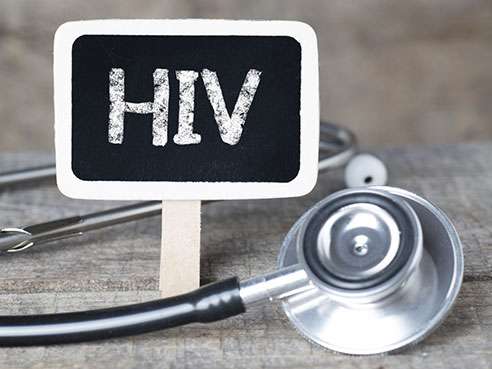Expert says battle against HIV must move from laboratories to communities

Pre-exposure prophylaxis, or PrEP, appears to fail as a method of preventing HIV in a new study of women in Africa, but it was actually stigma faced by the participants that affected the outcome, according to an accompanying editorial by a University of Alabama at Birmingham expert in the Feb. 5 issue of the New England Journal of Medicine.
An HIV-negative person can significantly reduce his or her risk of becoming infected by using the PrEP method, but the best results come with complete adherence to the medication regimen, says Michael Saag, M.D., professor of medicine and director of UAB's Center for AIDS Research.
The findings of the Vaginal and Oral Interventions to Control the Epidemic, or VOICE, trial showed that only about 30 percent of plasma samples had detectable drug, indicating that most participants were not taking their assigned medications regularly. Yet, 90 percent and 88 percent of participants (one group took the drug orally, and the other group used the gel form) said they had not missed a dose, and when unused medication was turned in at the conclusion, it appeared that 86 percent of medications were "taken."
"The HIV drugs work when taken; but for many reasons, the subjects in the VOICE trial reported that they took the medications even when they didn't," Saag said. "The question is 'Why?' Many answers are possible, but the leading ones are stigma and the possibility that being paid to participate in behavioral studies may corrupt the outcomes."
Saag says the study team investigated reasons the participants wanted to make it look as though they had taken their medications when they had not, once the study results were revealed. He says women feared adverse effects, despite being educated in advance, and falsely being labeled HIV-positive.
"Behavioral research is different from standard biomedical research," Saag said. "We have much to learn about the strengths and limitations of behavioral interventions and need to continue to modify our study designs to achieve the best outcomes."
A continued focus on stigma and study methodologies that truly change behavior could eventually lead to a better understanding of behavioral barriers in the setting of strong social stigma around HIV, Saag says.
"From the biologic perspective, we know a great deal about HIV and have developed drugs that convert the disease from an almost-certain death sentence to a chronic, manageable condition," Saag said. "Conversely, our understanding of human behavior, motivation and factors that improve adherence to a drug regimen is in its infancy."
"With the exception of a cure and vaccine research, the battle against HIV is shifting from the laboratories to the communities. This is where we need to be during the next decade to make a difference."
More information: "Tenofovir-Based Preexposure Prophylaxis for HIV Infection among African Women." N Engl J Med 2015; 372:509-518February 5, 2015. DOI: 10.1056/NEJMoa1402269


















